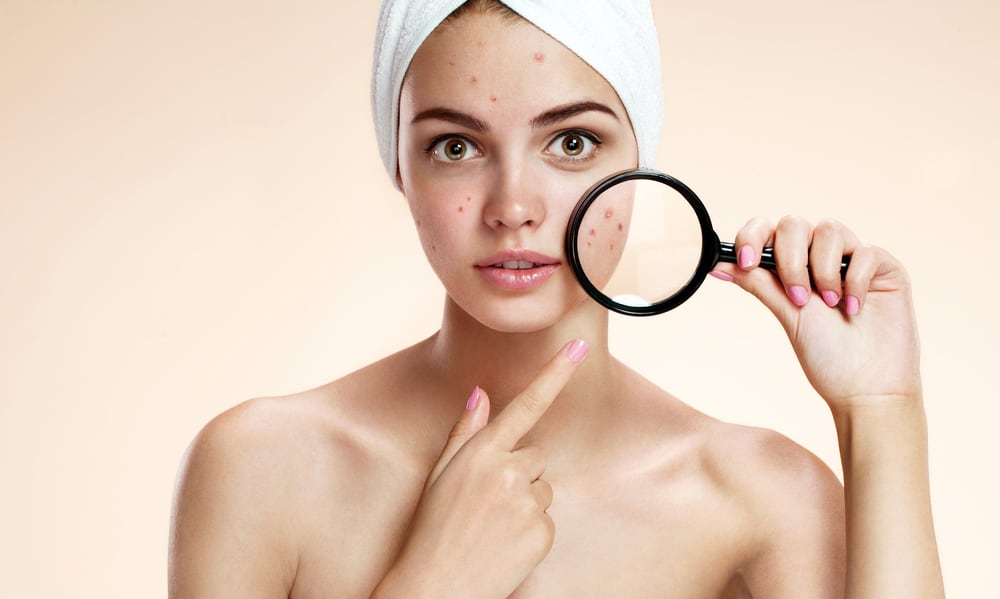Author: Dr. Steven Krause, MD
Reviewed: 12 March 2021
Smooth, clean, healthy skin is one of the main criteria for aesthetic beauty. Some have good skin from birth, but most of us have experienced acne at least once in a lifetime. Many people experience acne during adolescence, and at times of hormonal changes.

However, acne has long ceased to be a disease of adolescents. A study conducted in 2017 states that in 30% of cases acne first appears after 25 years. If you had problems with your skin as a teenager, most likely acne will continue to bother you from time to time.
The reason for this is the hyperactivity of the sebaceous glands. If your genetically sebaceous glands produce too much sebum, your pores can quickly become blocked. The substance secreted by sebaceous glands is not excreted, which causes the onset of inflammatory process. The more skin secretion you have, the faster acne will spread.
The problem with most is that they do not know how to treat this disease. Today, there are many cosmetic products, procedures and tips. But most of them do not work. The more you experiment with your skin, the worse its condition will be.
Stop experimenting. We have prepared an information brochure for you "How To Treat Acne Effectively In 2021".
Change your diet
Eating sugary, floury, fatty foods, a lot of simple carbohydrates in itself does not cause acne. The condition of the skin depends on the health of the intestines. If you overload them with heavy and unhealthy food, the body will quickly respond with acne on the skin.Therefore, we recommend that you add more fresh foods, fiber and complex carbohydrates to your diet. These foods will unload your intestines and help your body maintain optimal metabolism.
Dr. Steven Krause confirmed the theory that unbalanced nutrition is one of the main factors in the appearance of acne. He backs up his words with a clinical study that was conducted in 2016. In the course of the research, scientists found that a strong increase in blood sugar levels (which occurs when overeating or eating simple carbohydrates) significantly aggravates acne.
Moisturize the skin
There is an erroneous opinion that if you have oily skin, you do not need to use a moisturizer. But if you have acne, you should moisturize your skin even more. If you do not moisturize the skin, the body tries to do it in its own way. It enhances sebum production. This is what causes the obstruction of the sebaceous glands. If you regularly moisturize your skin and prevent it from drying out, the synthesis of skin secretion will decrease. This is the easiest, but the most effective advice that every professional cosmetologist can give you.Hydration of the skin is especially important in cities with hot climate: Darwin, Perth, Brisbane, etc. The more your skin is exposed to the sun, the more you need to nourish it. If you constantly moisturize acne-prone skin, the inflammation will gradually subside, and it will be easier for the skin secretion to be excreted from the deep layers. A visit to a beautician will be less traumatic for your skin.
Skin care products
If you have a mild form of acne, you can limit yourself to purchasing skin care products. Be sure to use everyday cleansers. They remove all the dirt and dust that covers your face during the day. You remove the coat formed by dirt that hinders the work of your pores. We also recommend that you use salicylic acid, or solutions that contain salicylic acid. We conducted a small survey among residents of Melbourne and Sydney and were surprised that among the local population this is the most popular acne treatment product. This acid has many beneficial properties, since it:- Reduces swelling
- Accelerates the regeneration of skin cells
- Has an antibacterial and anti-inflammatory effect.
- Reduces sebum production
- Reduces skin secretion
Acne medication
If you have a more severe form of acne and most of your face is covered with acne or comedones, consult your doctor. Perhaps the causes of pathology lie deeper than you think, and medications will be required for treatment.Products used in severe forms of acne:
- Antibiotics
- Hormonal contraceptive pills
- Vitamin A derivatives (Accutane)
Certified dermatologist Dr. Steven Krause points out that Accutane has an ambiguous reputation. Many downgrade it for its side effects. "But if you have acne that you cannot cure for many years, try generic Accutane. In 99% of cases in my practice, it has a positive effect after 1-2 weeks."
"In my practice there were more than 10 extremely severe cases of acne that covered the patient’s face, cheeks and back. Acne was about the size of a coin. It seemed that nothing would help. My colleagues suggested blood transfusion. But I insisted on Accutane. After 4 months, the patient’s skin was all but glowing healthy" says Dr. S Krause.
However, the use of drugs should be controlled by a doctor. You must understand that mild skin problems can be cured at home. But if you have severe acne, home treatment can damage your skin and leave you with serious consequences.
Dr. Steven Krause is a dermatologist in Reno, Nevada. He received his medical degree from Vanderbilt University School of Medicine and has been in practice for more than 20 years. As a board certified physician, Dr. Steven Krause, M.D., FAAD has the level of knowledge, experience and skills necessary to provide the highest quality, most comprehensive, state-of- the-art cosmetic, medical and surgical dermatologic care to patients who demand the very best.